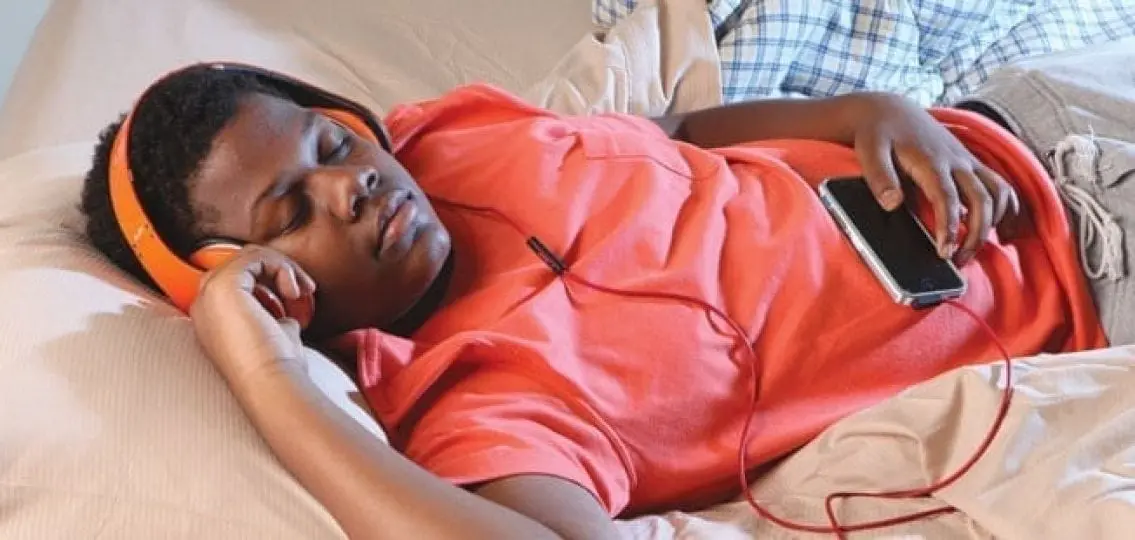When it comes to sleep and teens, summertime is much easier than the school year. No more yelling at our teenagers to get out of bed already! We can just go ahead and stash the alarm clock in the closet for the next three months, right?
Well, not exactly. While summer can be more relaxed, chances are your teenager will still need to be up in the morning, whether it’s for camp, a class, work, or whatever other structured activities he’s got planned. So, we turned to Dr. Sasha Carr, a psychologist and certified sleep consultant. Here’s her advice on teens and sleep in the summer.
Sleep and Teens: 3 Summer Sleep Tips
1. It’s okay to be more relaxed with summer sleep.

2. Set up your teenager for sleep success any time of year.
Carr recommends parents still stick with guidelines that encourage healthy sleep habits, like no technology after bedtime. “We know that teenagers who go to sleep with a phone or any device near their bed get about 45 minutes less sleep a night,” says Carr, who’s also founder of Off to Dreamland. By the way, that’s also the case for adults.
3. Get back to a school schedule a couple of weeks early.
Especially if your teenager has gotten into the habit of staying up late and sleeping in over the summer, be proactive about adjusting back to school sleep well before the first day, recommends Carr. “I recommend getting back into a reasonable schedule about two weeks before school starts, so it’s not a shock to the system.”





